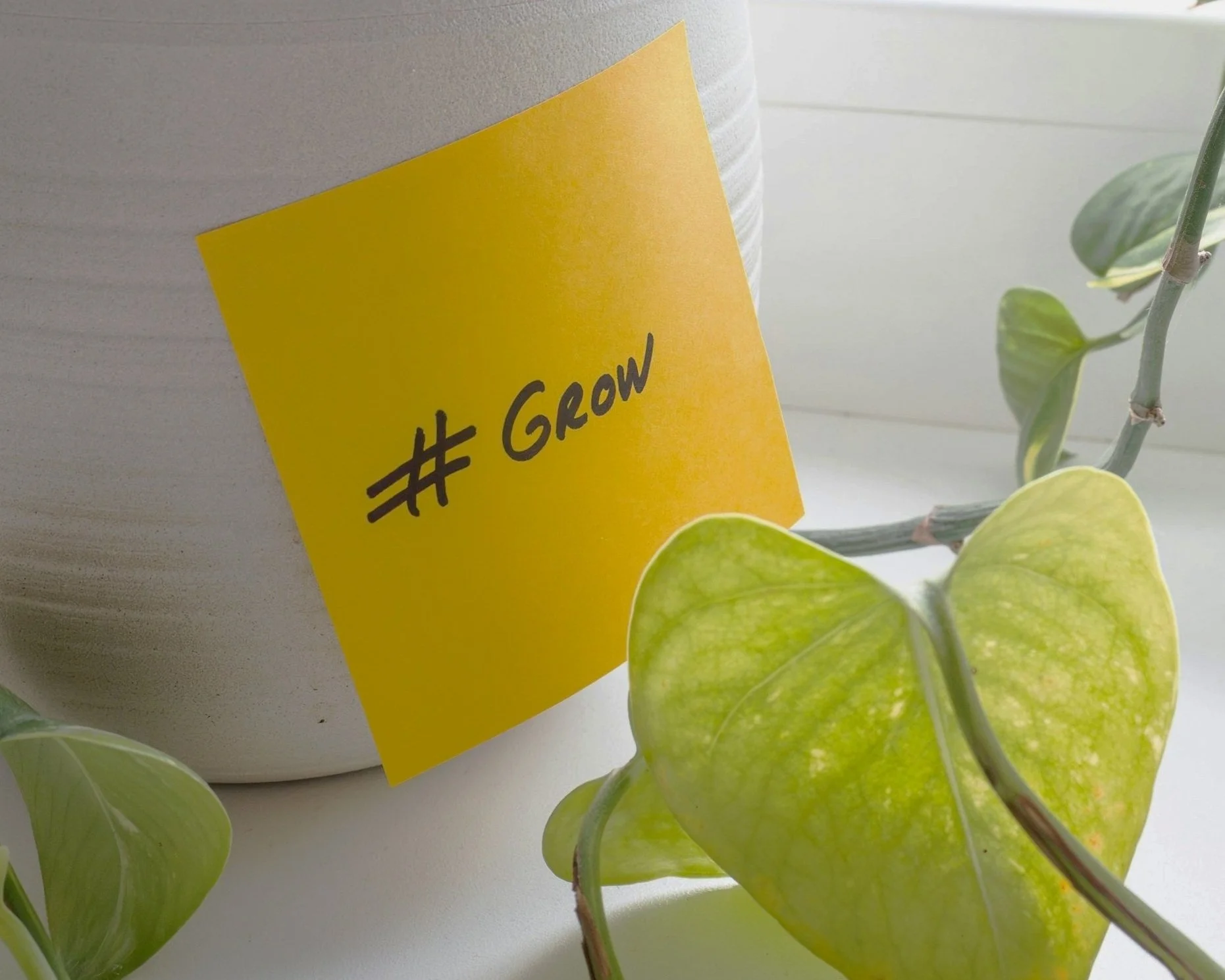5 Mindsets to Overcome Self-Doubt as First-Gens
Do you know that feeling when you finally hit a goal—and instead of celebrating, your brain immediately asks, “What’s next?”
For first-gen professionals, this version of self-doubt is particularly common. It drives us to aim higher—often beyond what our parents had—while also leaving us with a constant sense that we should be doing more, often at the expense of our own well-being.
When we focus only on the end results, we train ourselves to believe that happiness and success exist somewhere else—in the next job, the next project, the next version of ourselves. This keeps us always chasing, never truly satisfied.
But success and fulfillment don’t come from simply reaching the next goal—they’re found in how we move towards them.
So, let’s start looking in the right place, which is sometimes right in front of us. If you're tired of battling self-doubt, here are five mindset lessons from my first-generation clients that can help you find peace on the way to your success.
1. Give Yourself Permission to Pivot
Many first-gen folks feel pressure to stick with their choices—whether it’s a career, a relationship, or a path they chose years ago. We’ve often been taught that changing direction means we’ve wasted time or let someone down. But in reality, the ability to adapt is a sign of wisdom, not failure.
One of my clients struggled with guilt over leaving a stable job. She had worked hard to reach that position, and stepping away felt like betraying her future and her team. However, when we recognized that the reasons she had joined the company years ago were no longer present in her daily experience, it became clear that staying was hindering her growth. Instead of judging herself for not being "tough enough" to stay more years, we focused on the idea that "changing her mind" was actually a commitment to her leadership. This shift allowed her to start planning for her next role with confidence, rather than staying stuck in indecision.
What might you allow yourself to explore if you let go of the fear of “wasting time”?
2. Stop Looking for the Perfect Plan
For many first-gens, change and uncertainty feels risky. We’ve been raised to keep the peace and avoid failure at all costs. But waiting for the "perfect" plan often keeps us paralyzed, only able to choose the small, safe paths that don’t truly reflect who we are.
Take my client, for instance—he was hesitant to start a new relationship after a painful breakup, afraid he’d make the “wrong” choice. But once I helped him reframe dating as a process of learning about himself rather than making a permanent decision, he stopped feeling stuck. His dates helped him articulate what he was truly looking for in a partner, something he hadn’t been able to express before.
Instead of waiting for certainty, sometimes the clarity we’re looking for comes from action.
You’ve probably had an idea sitting in the back of your mind—something you’ve been meaning to start but keep putting off. What’s one small action you can take today that will inevitably move you closer?
3. Rest and Reflection is Productive
You’re not a machine; you weren’t designed to operate at the same level every day. Like nature and athletes, we need strategic rest. Pausing and slowing down isn’t a lack of progress—it’s what makes progress possible.
First-gens often struggle with rest, having been taught to equate productivity with worth. But most of us will also agree that burnout doesn’t equal success.
One of my entrepreneur clients used to force herself to have an early morning routine because she thought that’s what successful people did. Through our coaching, she experimented with different rest and work schedules, helping her to discover her natural rhythm. With this new awareness, she found it easier to truly rest and recharge, which opened her up to new, creative ideas that led to clients.
Many of us struggle to recognize when we’re most energized because we’re so used to believing that grinding is the only way to succeed. Start to pay attention to when you feel most alive. Are you a morning thinker or a night strategist? Does deep work recharge you, or do you need collaboration to stay motivated?
4. Success Isn’t Linear–Trust the Twists and Turns
Many of us were raised to believe in the “American Dream” of meritocracy: if you work hard, you'll succeed. But in reality, most of us find that progress looks more like an upward spiral, with repeating themes and unexpected lessons along the way.
In fact, when you try to control everything, you miss out on surprising opportunities. Staying open to change helps you build self-trust and confidence in your ability to handle whatever comes your way.
For example, one of my clients was relocating his family across the state and was worried about the rising costs. While the move happened sooner than he felt ready for, it allowed him to rent his previous home. This became a practice ground for negotiation skills that he later applied to his own business, helping him confidently raise his fees and build up his savings for his family.
Sometimes setbacks are doorways to new opportunities. If you’re struggling with self-doubt, ask yourself: Am I judging myself too early in the process?
5. Take the Damn Credit
As adult children of immigrants, we’re often experts at downplaying our accomplishments. We’ve been taught that humility is a virtue, and celebrating ourselves is self-indulgent. But the truth is, if we don’t recognize our own progress, it’s hard to ask others to do the same.
One client in a senior leadership position expressed to me, “I feel like I should be further along in my career.” However, when we took a closer look at their journey, they realized that during our coaching, they had expanded their network, established a strong reputation based on their personal strengths, and taken bold steps outside of their comfort zone. The problem? They weren’t counting any of it, and it nearly caused them to miss out on a promotion.
If you struggle with this, start paying attention to where you’re holding yourself back from taking credit. Keep a simple “wins” list, and try to be the first to tell yourself “great job!” It’s not about bragging—it’s about acknowledging your growth and honoring the ground you’ve gained so you can keep moving forward.
QUICK SUMMARY:
5 Mindset Shifts to Overcome Self-Doubt
Give Yourself Permission to Pivot – It’s okay to pivot and adapt. Changing direction is a sign of wisdom, not failure.
Stop Looking for the Perfect Plan – Don’t wait for certainty. Take action, even if it’s small, and clarity will follow.
Rest and Reflection is Productive – Rest isn’t wasted time. It’s essential for creativity and progress, so honor your natural rhythms.
Success Isn’t Linear. Trust the Twists and Turns.– Embrace setbacks as opportunities to learn and build resilience.
Take the Damn Credit. – Acknowledge your wins. Celebrating your progress keeps you motivated and reminds you of how far you’ve come.
Success Isn’t a Destination—It’s How You Move Toward It
Fulfillment isn’t waiting for you at some finish line. It’s built in the moments between—in the way you honor your own process, trust your energy, and give yourself credit along the way.
As first-generation leaders, experts, and entrepreneurs, embracing these mindsets can be a challenge given how we were raised. But it doesn’t have to stay this way. If you're ready to untangle it all and create a path that feels as joyful as it is successful, let’s connect.
Start enjoying your journey.



